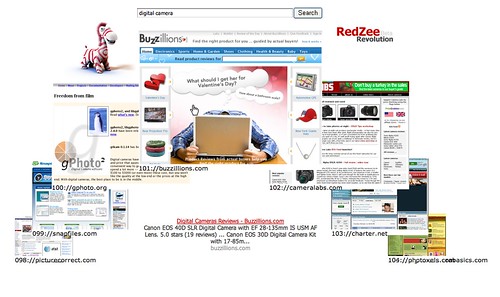Speculating About The Visual Future Of Search Results
Danny has written extensively about the past and potential future of search. And this past year we saw the introduction of “blended” or “universal” search. Among other developments, search results became much more “multi-media” and visual. In particular, video became part of organic and, most recently, paid search results. Accordingly, I believe that the future […]
Danny has written extensively about the past and potential future of search. And this past year we saw the introduction of “blended” or “universal” search. Among other developments, search results became much more “multi-media” and visual. In particular, video became part of organic and, most recently, paid search results. Accordingly, I believe that the future of search will be considerably more visual than it is today.
Mapping sites such as Microsoft Live Search Maps and Google Earth, with their layers of information, including images, text, community content, and video, offer much visually richer interfaces tied to location. However, though compelling, the size and limitations of these applications prevents them from becoming true mainstream search engines — at least for now. It’s also not always appropriate to render information on a map. (Though increasingly it’s happening to news as an alternative presentation of content.)
Video search engines like Truveo and Blinkx or shopping comparison engines (e.g., Like.com) are highly visual by definition.
However, there are a range of interesting and relatively new general purpose “visual search engines” that are seeking to offer something different than text-based results. There have always been “visual” presentations of search results (and preview features such as Ask’s binoculars or, more recently, Snap’s plug-in) as an alternative to “10 blue links.” However, these newer sites are on to something that may eventually take hold.
None of these sites in particular may succeed and they all have quirks and awkwardness. Arguably inspired by some of Apple’s desktop and iTunes content presentations, however, they point the way to potential new directions consistent with the increasingly visual content of search results.
Opinions expressed in this article are those of the guest author and not necessarily Search Engine Land. Staff authors are listed here.
Related stories


